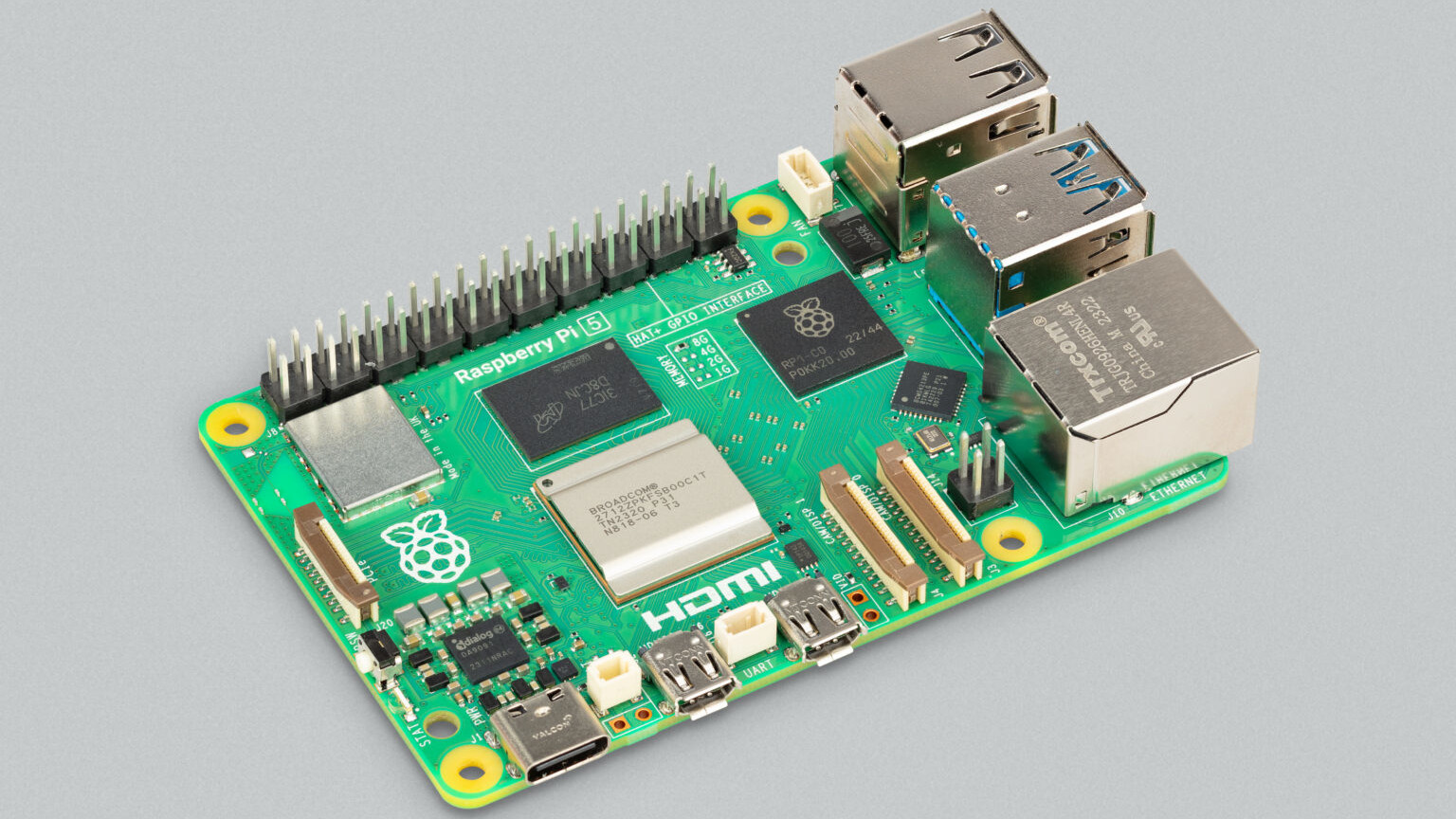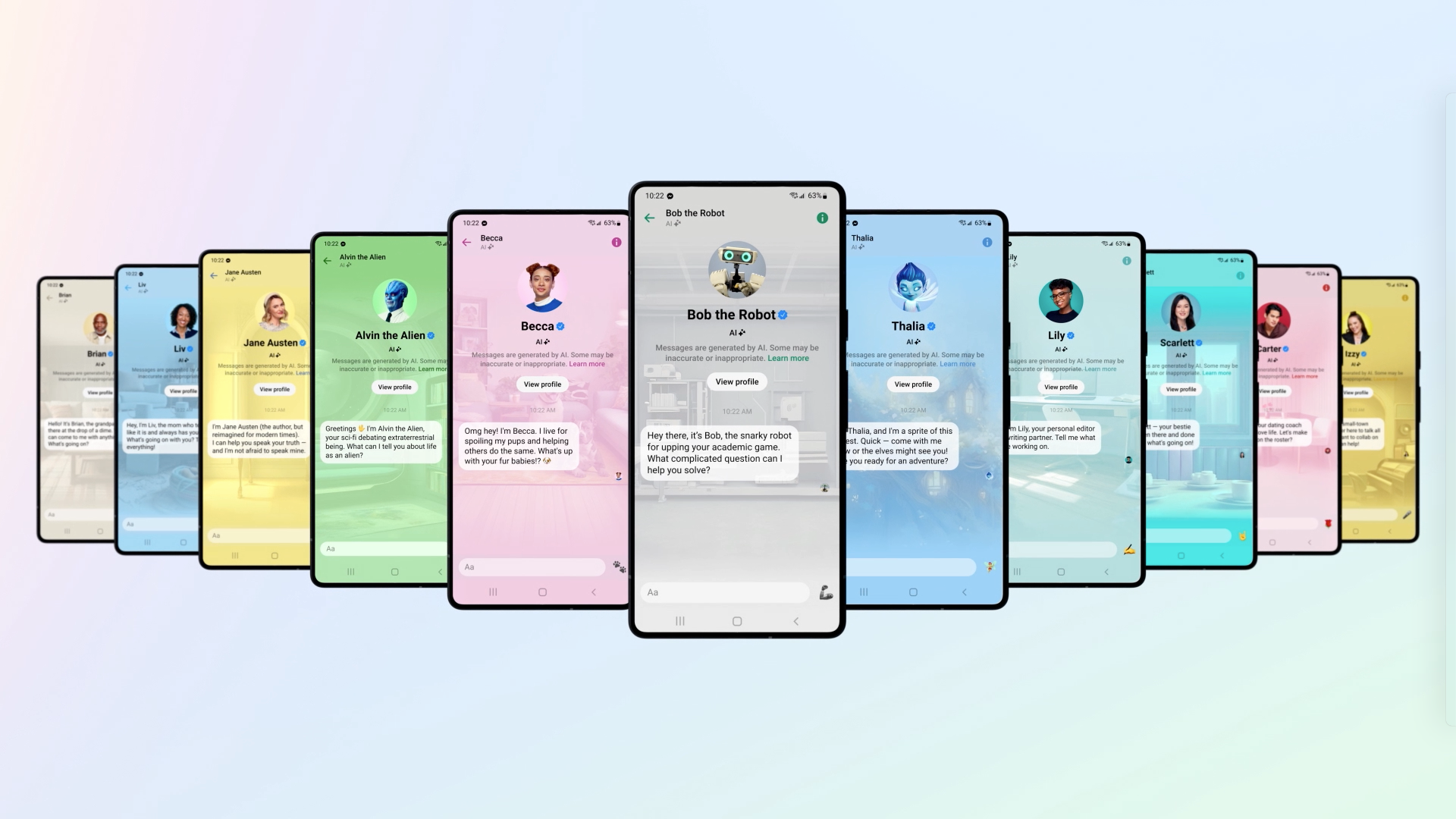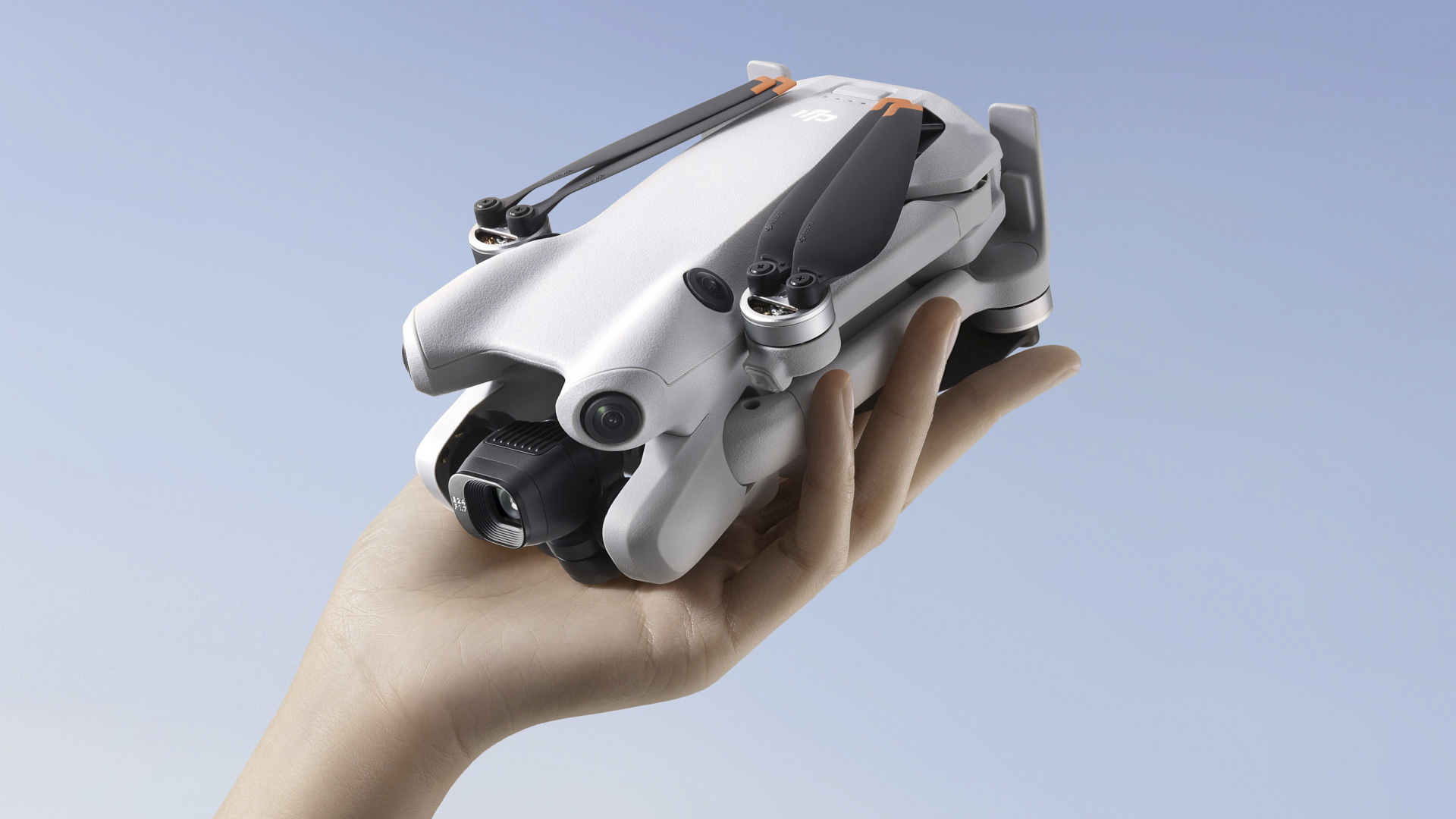The tech launches show no sign of slowing down as we head into October, with this week serving up another generous round of tech treats to help us wash down last week's helpings of Microsoft Copilot, Amazon's Alexa AI and iOS 17.
This time, it was Meta's turn to take to the stage at Meta Connect, where it made the unsurprising full announcement of the Meta Quest 3, alongside some big AI news. You can read about both of those below, alongside our verdict on DJI's new Mini 4 Pro drone (spoiler: it's great).
In between all of that, we were sorely tempted to pre-order a new Raspberry Pi 5 so that it can sit on our shelf collecting dust again, and we also found time to celebrate Google's 25th birthday. So if you were too busy this week living in actual reality rather than virtual reality, let us fill you in on all the tech news you missed...
7. Google turned 25 – and we celebrated in style

Okay, most birthday celebrations include party hats, candles and awkwardly fighting co-workers for a slice of cake. But for Google's 25th birthday this week, we decided to honor it in the only way we know how – by writing a series of features delving into the big G's biggest successes, mistakes and exciting future projects.
We looked back on how on earth we survived before Google (if you remember Altavista, Hotmail and Netscape, make sure to give that a read), praised our favorite unsung Google apps and services, and lamented the Google graveyard projects that we wish still existed.
Naturally, we also ranked the best Google Doodles of all time and also the best Google Easter egg surprises hidden in its various apps and services (including, most recently, Android 14). And as a nightcap, we looked ahead to the next 25 years of Google and its most promising future projects.
6. The Raspberry Pi 5 arrived to power your DIY projects

Partial to a DIY coding project? The Raspberry Pi has always been a great board for the hobbyist tinkerer – and now a powerful fifth version has just been launched with a new CPU and more.
Okay, there may be some issues with availability despite pre-orders kicking off ahead of an October launch, but it looks like the Pi 5 will be worth waiting for. The main boost is a quad-core Arm Cortex-A76 CPU running at 2.4GHz, and a major upgrade from the Pi 4's 1.8GHz chip.
But you also get a new VideoCore VII GPU for a boost in graphical performance, Bluetooth 5.0 and two HDMI outputs (alongside a pair of USB 3.0 ports) that let you hook up it up to two 4K displays (at 60Hz, with HDR support). Not bad at all for the $60 / £60 / AU$125 (4GB version) and $80 / £79 / AU$95 (8GB) price tags.
5. Dune became our next Netflix must-watch

Well, we didn’t expect Dune, one of 2021’s best movies, to take an Ornithopter-based trip to Netflix, but that’s exactly what’s happening very, very soon.
That’s right, one of the best Max movies is joining the world’s best streaming service on October 1, meaning more of us can stream Denis Villeneuve’s epic film adaptation of Frank Herbert’s seminal book whenever we want. You can find out if it’s worth watching by reading our Dune review first.
Will it make it onto our best Netflix movies list? Most likely, but Dune’s arrival on Netflix would’ve been so much better if its sequel was still set to arrive in early November. Unfortunately, Dune Part Two has been delayed until March 2024, meaning you’ll have to get your spice-laden fix of Arrakis via the first film for the next few months.
- Read more: Dune is heading to Netflix very soon, and its arrival would've been perfect but for one issue
4. The iPhone 15 ran into a few teething issues

This week we saw the first iPhone 15 and iPhone 15 Pro phones delivered to their new owners – and while most were excited to receive their new pocket companions, some discovered a few small issues with the first batch of Apple's new phones.
Apple responded to a couple of the issues, namely an iOS bug that made the phones freeze when directly transferring data from another iPhone, plus an issue with fingerprint smudges on the Pro models' new titanium finish. An iOS update (17.0.2) sorted out the former, while Apple updated its support page for cleaning the iPhone 15 series.
Yet anecdotal evidence suggests other small niggles are persisting for some, including the odd manufacturing defect and, later in the week, reports of overheating incidents. We haven't discovered any of these issues during testing and there's no suggestion that they're widespread, but it's something we'll be keeping an eye on (and asking Apple about) in the week ahead.
3. Meta revealed its new AI assistants for WhatsApp and more

Meta's quietly been making significant strides in the world of artificial intelligence –and at this week's Meta Connect event, it revealed a bunch of AI-powered tools that are coming to the likes of WhatsApp, Instagram and Messenger.
The most useful is arguably a new AI image generation and editing feature for Instagram, which will soon help you apply effects like a watercolor filter or convert it to black and white. But Meta is also baking a lineup of 28 AI characters into its three messaging ups, making them more like a 'social' version of ChatGPT.
These characters are inspired by celebrities like Kendall Jenner, Mr. Beast, Paris Hilton, and Snoop Dogg. You'll be able to have direct conversations with these 'personas' and even inquire about Paris Hilton's favorite lip gloss. As you chat with these characters, their profile images dynamically animate, adding an engaging visual element that's often lacking in conversations with typical AI chatbots.
2. The DJI Mini 4 Pro landed and became our favorite small drone

If you're looking to get into aerial photography and videography, then the DJI Mini 3 Pro has long been our recommendation for beginners – and this week it was succeeded by (you guessed it) the Mini 4 Pro.
Okay, not a lot has changed on the camera front, with the Mini 4 Pro offering the same 24mm f/1.7 camera as before – it has a 1/1.3in sensor for shooting 48MP photos and 4K video.
But what has been upgraded is the drone's obstacle-sensing, which is now omnidirectional for safer flying, plus the inclusion of Ocusync 4.0 connectivity and waypoints (for pre-determining a route for your drone to fly through). Not a major upgrade, then, but the Mini 4 Pro still does enough to inherit the crown of being the best drone for most people.
1. The Meta Quest 3 became the best VR headset you can buy

Alongside its new AI personalities, Meta finally unveiled the Meta Quest 3 – and based on our experiences with it so far (which you can read more about in our hands-on Meta Quest 3 review) it’s the best VR headset you can buy.
Thanks to its Snapdragon XR2 Gen 2 chipset, the Meta Quest 3 boasts a 2.5x better graphical performance than the Quest 2, plus it has full-color mixed reality that’s higher quality than what we’ve seen from its rivals – even the Meta Quest Pro. Best of all, the Quest 3 is a reasonable price at just $499.99 / £479.99 / AU$799.99 for the 128GB version.
Sure it could have higher RAM, and eye-tracking would have been appreciated, but we don’t think you’ll find a finer VR headset for this price.
via Hosting & Support
Comments
Post a Comment